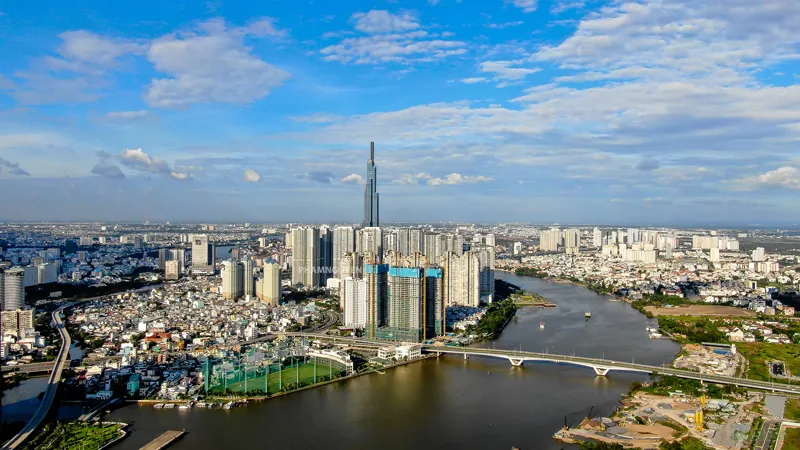
In the process to develop such a high-tech city that will provide a multitude of facilities, Professor Dr. Tran Ngoc Tho, a member of the National Financial and Monetary Policy Advisory Council, lays out three possible problem scenarios that this venture could face.
Firstly, this gigantic project must consider the strong possibility of a perennial change in the behavior pattern of people, financial institutions and multinational corporations in an altered post Covid-19 pandemic scenario. If we do not consider this factor and take into account the many changes that it will bring for all mankind, it will surely lead us to make inappropriate investments and decisions. There are many opinions when building a new modern city, such as the necessity to have a bustling commercial center, a large airport, a busy harbor, and similar futuristic requirements.
However, with the new 4.0 technology, people will tend to stay more indoors, with most transactions being conducted online. Hence, we need to question whether creating large shopping malls will be a requirement and whether other plans such as making Thu Duc City into a lively daytime and bustling nighttime city actually work for future generations if their activity pattern changes otherwise.
This is evident from the experience of the Dubai International Financial Center in the United Arab Emirates, which is now at risk of bankruptcy. The international financial center was built on the model of huge retail supermarkets, high-end shops and restaurants, and massive 5-6 star hotels, which never saw an increase in customers but rather a decline. Therefore, from now on, we must review carefully all futuristic plans before building the new Thu Duc City.
Secondly, we need to think very seriously on the source of capital to invest in the making of Thu Duc City. Currently, there is a lot of talk of a land fund, but according to Professor Tran Ngoc Tho, the land fund is always finite, while endless financial resources and creative ideas will bring new opportunities continuously, especially in the post Covid-19 scenario.
Therefore, our way of thinking must not be traditional. This means we should look at creating a world-class environment, have an independent judicial law, use convertible currency or have special economic zones, and allow foreign capital to move in and out freely. Talent must be sourced from the eight billion people in the world who can come here, not just from the 96 million Vietnamese people. So the question now points to how we manage our visa system to attract talent, create financial resources and not just depend on land banks and the legal institutions to attract huge investments.
Thirdly, the districts in the Eastern parts of Ho Chi Minh City are currently encountering many legal obstacles from the Ministry of Justice and the Ministry of Home Affairs. Before Thu Duc City even begins to establish, these hurdles will need to be cleared. The future city also has to deal with some existing issues with the State Bank of Vietnam and the Ministry of Finance. Other issues such as capital outflow, taxation, security and converting of areas need all to be dealt with before the project can even begin. These issues and problems are very multidimensional and complex.
According to Professor Tran Ngoc Tho, the decision making leaders in Ho Chi Minh City have to first prepare draft plans to present to the Party Committee members before they are accepted by the general public. Ho Chi Minh City is just a geographical part of the country and cannot enforce the political will of the entire country. Professor Tran Ngoc Tho also proposes that to realize this monumental goal, perhaps we should only aim to establish special economic zones or special financial zones and execute a law passed by the National Assembly, so that we can having an easier legal space and make our dreams come true.




















